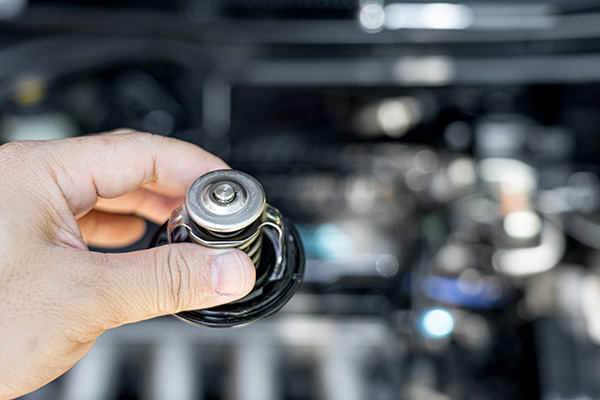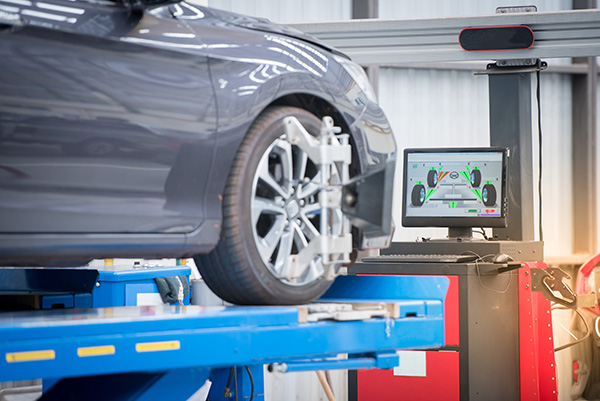Posted on 1/30/2026

A thermostat is a small part that can cause big confusion when it starts acting up. Your car might run cooler than usual, or it might start creeping hotter in traffic, and the symptoms can feel inconsistent. One day everything looks normal, the next day the temperature gauge does something that makes you nervous. A stuck thermostat is a common cooling system issue, and the warning signs usually show up before the engine truly overheats. If you know what to watch for, you can catch it early and avoid the kind of heat stress that leads to expensive repairs. What The Thermostat Does In The Cooling System The thermostat controls coolant flow between the engine and the radiator. When the engine is cold, the thermostat stays closed so the engine warms up quickly. Once the engine reaches operating temperature, the thermostat opens to let coolant circulate through the radiator and control heat. When it works correctly, the temperature gauge stays steady after warm-up. When ... read more
Posted on 12/19/2025
%20copy.jpg)
Unexpected car bills have a way of showing up at the worst possible time. One month everything seems fine, the next month you are staring at a big estimate and wondering how you will squeeze it into your budget. The good news is that most of those “surprise” expenses are predictable once you know what your car usually needs in a year. Why Car Costs Feel Like They Come Out of Nowhere Most drivers think in terms of gas and maybe an oil change or two. Tires, brakes, fluids, and bigger services live in the background until something wears all the way out. Shops see the same pattern every year. People delay maintenance because the car still feels okay, then several items land at once and the bill looks huge. Another reason it feels so random is that maintenance does not follow your paycheck schedule. You might go three months with no shop visit, then get hit with tires and brakes in the same week. Budgeting is really about smoothing that out so the money is s ... read more
Posted on 11/28/2025

Wheel alignment keeps steering stable, tires wearing evenly, and driver assist features behaving as designed. Still, a lot of advice about alignments is outdated or just plain wrong. Let’s clear up the most common myths so you know when an alignment truly protects your car and budget. 1. “Alignment Is Only for Cars That Pull.” A steady pull is one symptom, not the only one. Slight toe errors can shave rubber off the inner or outer shoulders without any obvious drift. You may notice a faint steering wheel tilt, light feathering across the tread, or a car that feels “busy” on straight roads. Catching small angle changes early prevents premature tire replacement. 2. “You Only Need an Alignment After a Big Hit.” Curb strikes and potholes can definitely bend things, but normal wear moves angles too. Rubber bushings relax with age, springs settle, and tie-rod ball sockets develop tiny amounts of play. Even a fre ... read more